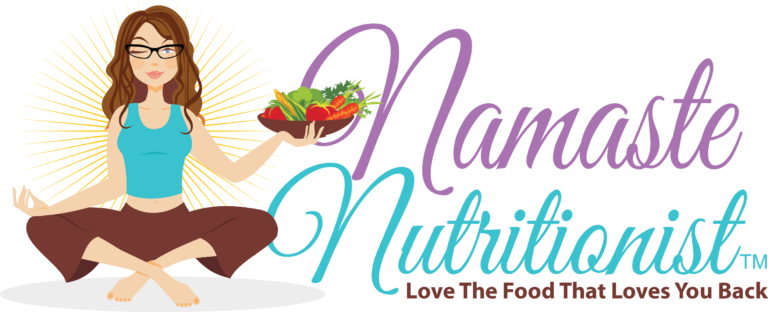“Vulnerability is our most accurate measurement of courage.” (Brené Brown)
It’s not every day that I find a TED talk so compelling that I would take notes and then write a blog post about it. In her talk about The Power of Vulnerability (Ted Talk), speaker Brene Brown shed light on two very dark and uncomfortable topics: shame and vulnerability. This post will focus on vulnerability; the next will focus on shame.
This topic went wildly viral, which is a testament to how deeply interesting this topic is to us. Brene Brown defines vulnerability as being at the core of shame, fear, struggle for worthiness. Simultaneously, she says, it is also the birthplace of joy, creativity, love, belonging, innovation and change. Because most of us fail to embrace vulnerability, we instead numb vulnerability: we are the most in debt, obese, medicated & addicted society.
When we numb one thing, we actually numb it all. We can’t selectively numb pain without also numbing joy, pleasure, gratitude. – Brene Brown
For me, vulnerability has been an especially scary learning curve, especially in the online world. It’s sooo much easier to be vulnerable in person than it is online, but it’s frightening no matter what. Rejection and ridicule are considered worse than rattlesnakes for most of us, which is why public speaking is frequently ranked as being worse than death. I’m working on being more open and vulnerable. I’ve had to seek models for how to embrace vulnerability without losing myself in it (which I have done). I did not have models for how to process and express emotions when growing up. Sadly, I have noticed that there is a profound lack of models for vulnerability for many of us in the US, and maybe even in the world. This situation is not poised to improve anytime soon either. One in ten Americans are taking an anti-depressant now, which is a testament to our weakening ability to effectively process our negative emotions and vulnerability. How can we expect to teach our children to process their negative emotions if we cannot effectively do it, or at least, try to do it? Listen, sharing what makes us vulnerable with those we trust promotes stronger social ties. Having friends, mentors, and people with whom we share mutual affection and concern is an anti-depressant! Humans were never, ever designed to face life alone – that would be brutal. We need each other to grow, to learn, and to enjoy life.
What are our collective expectations around how happy life should be in relation to sadness? I think that personal definitions around happiness have a lot to do with what we expect happiness to do for us in life. Do we expect that life should only be sunshine and daisies? I’m not saying that anti-depressants are never, ever a good answer. There are certainly conditions in which they can be life-saving and help many individuals with very difficult illnesses. But for the vast majority of us, I worry that we are giving up too quickly. Joy and sorrow are complementary and complex human emotions, a part of what makes this ride of life the interesting journey that it is. Someone who has had a healthy measure of both happiness and sorrow can appreciate both the highs and lows of life as being essential tools for growth.
Ancient yogic wisdom says it best: pain brings deep reflection and sets the stage for a more substantive life; pleasure promotes expansion and enjoyment of life’s greatest attributes. You need both to be well-rounded. Have you ever been around someone who is off-the hook happy and refuses to get real? It’s unbelievably annoying, partly because it’s not real. Or someone who is all clammed up about their problems and manages their pain with self-destructive behaviors, ie, alcoholism or other addictions? But when we are stuck thinking, “I should be happier”, or “I can’t let the kids see me cry”, or “I’ll let my (fill in the blank) down if they know I’m having a hard time”, you are holding yourself back. If this is your dialog, you need to get over yourself and join the club where real people hang out. Real people = real experiences = real fun.
The first step is learning to accept things as they are. You can’t change something you don’t yet accept. I’ve developed a simple strategy for accepting my vulnerability, and it starts with reminding myself of three things: 1) I’m not 100% flawless, nor am I trying to be, and I have a lot of great qualities that being vulnerable can’t take away; 2) Opening up about vulnerabilities is a fertile ground for receptivity and tremendous growth. I can’t accept others’ advice or feedback if I don’t acknowledge my own shortcomings; 3) To be vulnerable and imperfect is human and gives others permission to open up, share, and heal as well. After I’ve reminded myself of these three things, my vulnerability starts to seem, almost, powerful. Because when allow pain and sorrow to have expression, we simultaneously create the space for joy, pleasure and gratitude to express.
How do you handle vulnerability, shame, or both? Do you think that it is as important as I do? Why or why not?
Your suggestions will be helpful to me and other readers!
Thank you for the insights and for reading. Please share the love by sharing this with others. =-)
Love,
Frances


3 responses to “Vulnerability Can Be An Asset”
First of all, we feel vulnerable when there is something left inside to hide, from our awareness as well as others. We’re more acutely aware of others’ perceptions of us. This is ego. When we have exposed, explored and accepted all that is within, it lessons are vulnerability. Of course there are times when our hearts are wide open and we feel very sensitive and delicate, but this is a result of being tuned in, not out, not hiding from what IS. Secondly, we should focus not on trying to obtain and maintain happiness, but rather on one of well-being. Happiness is an emotion, that comes and goes like waves, alternating with sadness and other emotions. When we eat well, exercise, engage in rewarding work that utilizes our talents for the benefit of others and meditate (focus inward in some way, personal growth, yoga, etc.), then we have a place of well-being to rest. We rest in the source of our being, like observing the surface waves of emotions from the bottom of the ocean of true self.
Your commentary rounds out this discussion nicely, Jennifer. Perception, ego and awareness are key elements as well. Meditation, exercise, and meaningful work are indeed essential ingredients for managing our well-being.Thanks for the thoughtful reply, Dr. Irwin! =-) I like the name of your website, too. (sourcepsychiatry.com)
Thanks. Writing too fast: “it lessons are vulnerability” vs. “it lessens our vulnerability.” Right on Spellcheck!